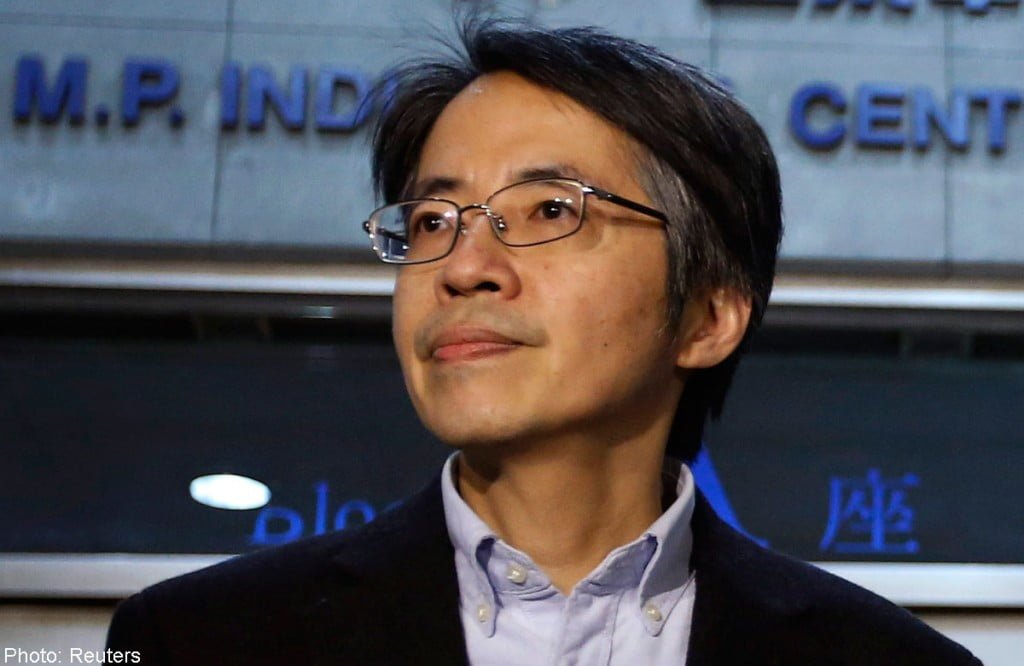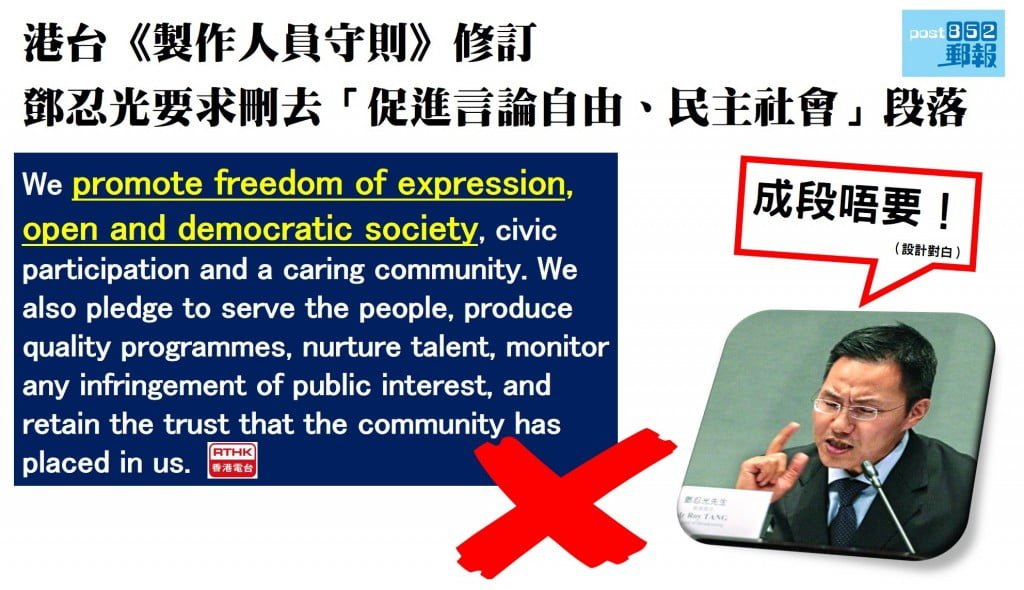Journalist Kevin Lau spoke at the Human Rights Press Awards annual luncheon on 9 May, 2015 about being attacked in February 2014. The attack, by chopper wielding assailants who hacked at his legs, took place not long after Lau was sacked as the Editor of Ming Pao, and left him bleeding on the pavement.
Here is his address on why “Now is the worst time – and best time – to be a journalist in Hong Kong.”
Dear Guests and Friends,
In the past two years, people have frequently asked whether press freedom in Hong Kong was under threat. Now I think the answer is crystal clear. It is. In this sense, now is the worst time to be a journalist in Hong Kong.
For those of you who still have any doubts about this, who still believe that the Hong Kong press still enjoys the same freedoms it used to have, let me ask you a few questions.
1. How often do you see the proprietor of a highly popular newspaper coming out to admit publicly that Mainland corporations including major banks are withholding advertisements for political considerations?
2. How often do you see the owner of a highly popular news website coming out to admit publicly that he was closing down his news operation for fear of political reprisal?
3. How often do you see a commercial broadcaster shutting up a highly popular current affairs program host by suddenly terminating her contract?
4. How often do you see over a hundred reporters, editors and news anchors of a major television station signing a joint public statement to criticize the news handling decision of their news controller?
5. How often do you see a veteran journalist who had been the chief editor of an influential newspaper being brutally attacked with a
chopper outside a public park in broad daylight?
When these unbelievable things all happened within a time span of twelve to fifteen months, do you think it is pure co-incidence? For every single incident mentioned here, one might say that perhaps it was an isolated case, that perhaps it was not directly related to press freedom. However, when they came one after another like dominos, the effect on public perception and public confidence was debilitating.
I have stayed in this field for 25 years. I know the climate changes when I see the signs. This is not the first time. Back in 2003 to 2004, when we had a similar situation of an unpopular Chief Executive trying to sell an unpopular policy to the public, we would see powerful people stretching their muscles to try to stamp out any critical voices in the mainstream media. Last time the unpopular policy was national security legislation. This time it is universal suffrage with a nomination screening mechanism. History is repeating itself.
If you need more evidence, to prove that press freedom in Hong Kong is really under threat, I would refer you to the numerous statements and reports published by the Hong Kong Journalists Association, the Foreign Correspondents Club and other professional organizations. The alarm bell has been rung again and again. You may also look at the findings of journalism professors at local universities on media self-censorship, which has gone up, and media credibility, which has gone down.
The latest signal of this worrying trend is the government decision not to prosecute a criminal suspect who was alleged to have assaulted two television journalists performing their duty of reporting in a public gathering. The apparent reason was that the suspect and the actors were allowed to wear hats and masks covering most of their faces in the identification parade, which rendered the victim’s task of identifying the attacker impossible.
Recently I was asked by some young journalism students whether they should join the news profession in light of all these unfavourable developments. I told them all the inconvenient truths. The sad reality is that in many respects now is probably the worst time to be a journalist in Hong Kong. But, nonetheless, I advised them to go ahead and become journalists if they are really interested in news reporting. Why? Because in other respects now is also the best time to become a journalist in Hong Kong with an eye on the future.
Hong Kong will maintain its role as an international financial centre. This is a simple fact recognized by everyone, including the authorities in Beijing. The Chinese leaders may have a different view from the local community regarding democratic development in Hong Kong. But there is no dispute on HK’s role as an international financial centre. During the Occupy Movement last year, Beijing gave the green light for the cross-market stock purchases program between Shanghai and Hong Kong. The timing of the decision surprised many people. It reflected a strong determination to keep HK’s stock market vibrant and useful for Mainland enterprises to raise capital.
As we all know, a truly international financial centre must maintain an environment where there is a free flow of information. You cannot shut Bloomberg down. You cannot ban Facebook or Twitter or Youtube. Last year when the Apple Daily’s highly popular news website was paralyzed by hackers, apparently coming from the north, they decided to upload all their digital news onto Facebook and Youtube. Unless you could shut down the entire internet, you could not stop them from publishing their stories. As a result, the attacks stopped.
Digital news is a totally new ball game. In the past, we, the editors in charge of the news rooms of mainstream media outlets, dictated what the public could read or watch. We the editors decided which item went on the front page and became headline news. Now the game has changed. In the digital world, the crowd decides which piece of news they prefer to read and to share. This crowd judging and crowd sharing has changed the balance of power between the editors and the readers. The accumulated hit rate and online viewership of any news item depends on the crowd, not the editors.
Also, the 24 hours real time functioning nature of the highly transparent digital news world renders media self-censorship extremely difficult. If a news room chief in Hong Kong decides to ban a piece of newsworthy digital material from publication, he or she may soon find the material spreading like wildfire on the Internet, and the decision to censor it will quickly become a news story in itself.
For young people who grew up in the digital age, they can acquire the invaluable communication skills necessary in the new era much more quickly than their senior news managers or executives. They know how to push the gist of the news to their readers’ smartphones apps or their social networks. They know how to make it sticky and catchy. In just a few years, they would have accumulated online news making and spreading experiences that cannot be matched by traditional journalists, even those with 20 years of experience.
Diving into the digital news world might be a risky business for some media organizations. Subscriptions are hard to find. Until recently, advertising revenue was thin. But the scene is quickly changing. Online advertising has been growing at a double digit year on year since 2013. Readership migration from traditional to digital is unstoppable. In the coming few years, digital first will no longer be a slogan. It will become a business necessity. Young journalists have nothing to lose if they dive into this trend right now.
So, in this respect, now is the best time to be a journalist of the new media in Hong Kong.
Source: www.humanrightspressawards.org
Editing: bc magazine


